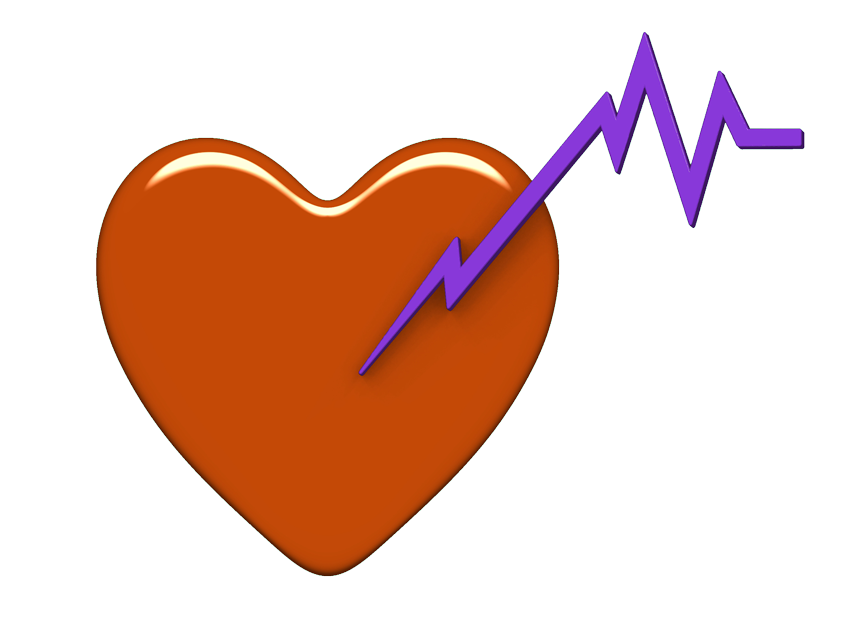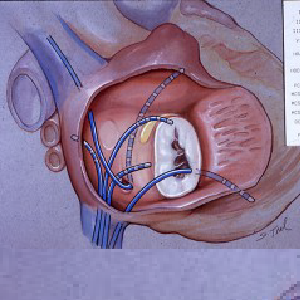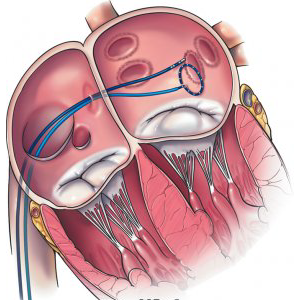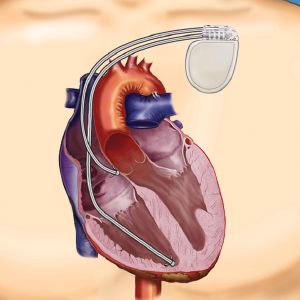

Electrophysiology is a sub-specialty within cardiology, dedicated to the understanding of the heart's electrical system and treatment of its disorders. Specialists in this area are ideally poised to diagnose and treat arrhythmia, which is usually manifested by symptoms of palpitations, dizziness, lightheadedness or passing out spells (syncope).
The EP study is a procedure designed to diagnose and potentially treat an underlying arrhythmia. The procedure runs between 2-3 hours, and is performed under anesthesia. This study uses the venous anatomy to deliver specialized steerable catheters to specific locations within the heart to induce and study the conduction system. Once the study is completed, a diagnosis is reached, typically concluding in an ablation.
A pacemaker is a complex medical device, encompassing a computer, transmitter and battery, and which is designed to prevent slow heart rates. It can prevent passing out spells, or dizziness and lightheadedness, but can also be used to restore normal heart rate response and decrease fatigue. The procedure takes about one hour to complete, and usually requires the patient to stay in the hospital overnight.

This is the process by which we attempt to destroy the underlying arrhythmia. It uses small amounts of focused electrical energy to remove an additional electrical pathway, or render an excitable focus inert. Depending on the location of the causative agent, the success of this portion of the procedure varies between 70% to over 98%.

This procedure is an involved form of the ablation procedure, in which energy is delivered at the junction between the pulmonary veins and the left atrium with the goal of destroying the electrical connection between the two veins, eliminating the triggers of atrial fibrillation. The additional risks here are secondary to left atrial access and include risk of bleeding, esophageal damage and stroke. All benefits and risks will be addressed in detail during a pre-op visit.

A Defibrillator is a very complex medical device which encompasses a computer, transmitter and battery. It has a pacemaker within it so it can take care of slow heart rate problems, but can also help in treating fast heart rates.
Defibrillators can prevent passing out spells or dizziness and lightheadedness. It can also be used to restore normal heart rate response and decrease fatigue. It is life saving tool, usually used in patients at high risk for sudden cardiac failure. The procedure takes about one to two hours to complete and usually requires the patient to stay in the hospital overnight.